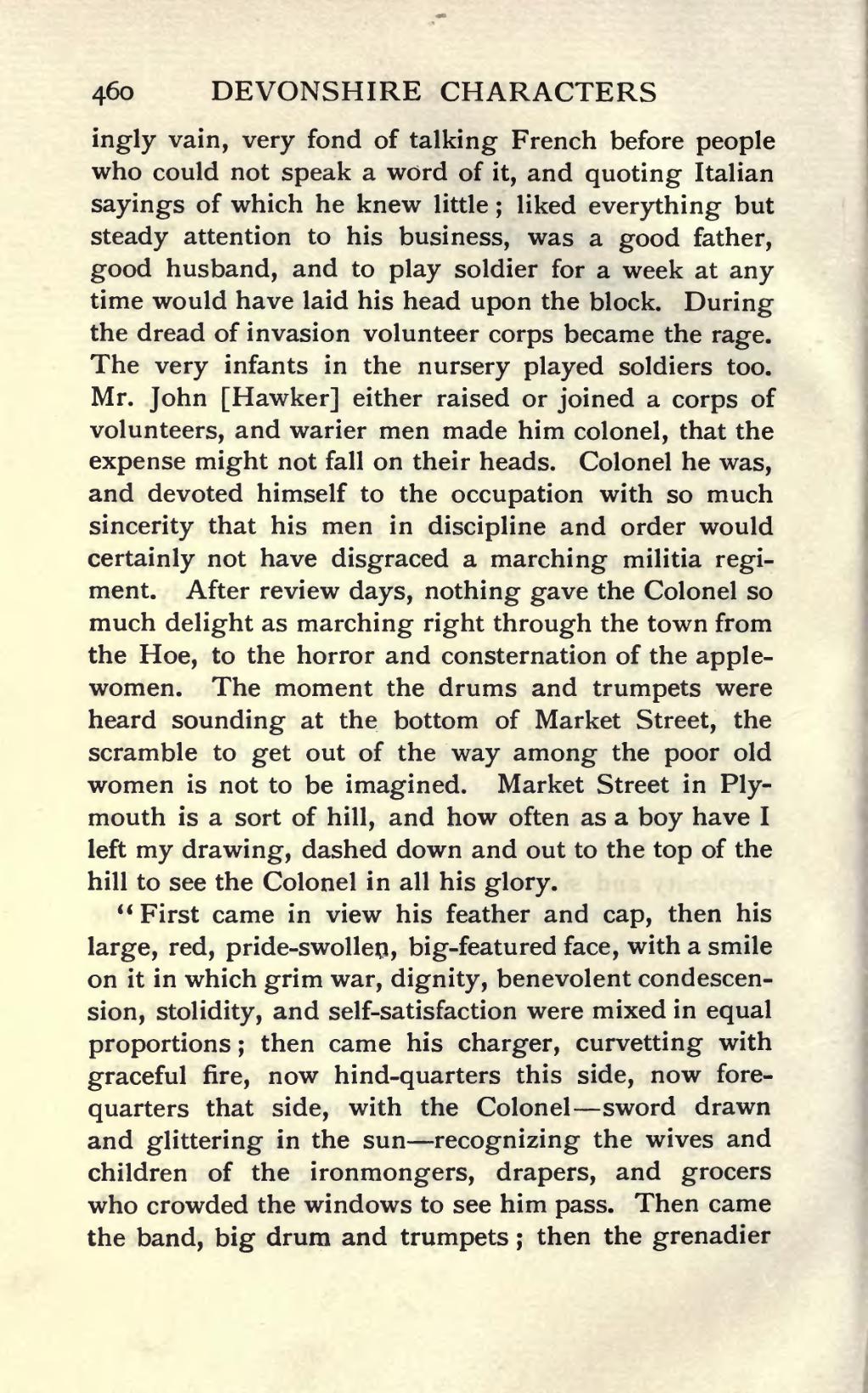ingly vain, very fond of talking French before people who could not speak a word of it, and quoting Italian sayings of which he knew little; liked everything but steady attention to his business, was a good father, good husband, and to play soldier for a week at any time would have laid his head upon the block. During the dread of invasion volunteer corps became the rage. The very infants in the nursery played soldiers too. Mr. John [Hawker] either raised or joined a corps of volunteers, and warier men made him colonel, that the expense might not fall on their heads. Colonel he was, and devoted himself to the occupation with so much sincerity that his men in discipline and order would certainly not have disgraced a marching militia regiment. After review days, nothing gave the Colonel so much delight as marching right through the town from the Hoe, to the horror and consternation of the apple-women. The moment the drums and trumpets were heard sounding at the bottom of Market Street, the scramble to get out of the way among the poor old women is not to be imagined. Market Street in Plymouth is a sort of hill, and how often as a boy have I left my drawing, dashed down and out to the top of the hill to see the Colonel in all his glory.
"First came in view his feather and cap, then his large, red, pride-swollen, big-featured face, with a smile on it in which grim war, dignity, benevolent condescension, stolidity, and self-satisfaction were mixed in equal proportions; then came his charger, curvetting with graceful fire, now hind-quarters this side, now forequarters that side, with the Colonel—sword drawn and glittering in the sun—recognizing the wives and children of the ironmongers, drapers, and grocers who crowded the windows to see him pass. Then came the band, big drum and trumpets; then the grenadier

